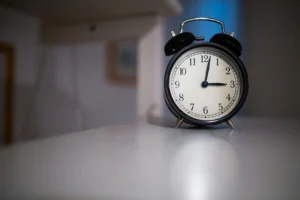For centuries, the full moon has been tied to myths and mysteries, from werewolves to restless nights. But is there any truth to the idea that it disrupts sleep, especially in children? If your little one seems extra wired—or unusually wakeful—during a full moon, you’re not alone in wondering if the moon’s luminous glow might be to blame.
What Does the Research Say?
Scientific studies have explored the connection between lunar phases and sleep, but the results are mixed. A 2013 study published in Current Biology found that during the full moon, participants slept 20 minutes less, took longer to fall asleep, and had reduced deep sleep. However, more recent studies have found no clear connection between moon phases and sleep disturbances.
While science doesn’t provide a definitive answer, anecdotal evidence from parents often points to disrupted routines or heightened energy during the full moon. Whether it’s coincidence or cosmic influence, it’s worth looking at factors that could be at play.
Why Kids Might Sleep Differently During a Full Moon
1. Increased Light Exposure
A bright full moon can flood bedrooms with light, especially if curtains or blinds don’t fully block it. Children are more sensitive to environmental changes, and increased light exposure can suppress melatonin, the hormone that regulates sleep.
2. Heightened Energy
Some parents report that their children seem more hyperactive around the full moon. This could be due to psychological factors (like parents anticipating behavior changes) or natural cycles that aren’t yet fully understood.
3. Routine Disruptions
If your family enjoys moonlit walks or outdoor activities during a full moon, it might push bedtime later than usual, contributing to cranky mornings and sleep struggles.
How to Help Your Child Sleep Well During a Full Moon
Regardless of whether the moon is influencing your child’s sleep, maintaining consistent routines and an ideal sleep environment is key:
1. Control the Light
Use blackout curtains or blinds to minimize the moonlight entering your child’s room. Consider a sleep-friendly nightlight if your child prefers not to sleep in complete darkness.
2. Stick to a Routine
A predictable bedtime routine helps signal to your child that it’s time to wind down, no matter what’s happening outside.
3. Minimize Screen Time
Limit screen use before bed to prevent overstimulation and ensure melatonin production stays on track.
4. Encourage Calm Activities
Incorporate relaxing activities like reading or gentle yoga into your child’s pre-bedtime routine to help them feel calm and ready for sleep.
5. Observe and Adapt
If you notice recurring sleep disruptions during the full moon, keep a sleep journal to track patterns. Sometimes, the “full moon effect” might overlap with other factors like developmental milestones or changes in your child’s day-to-day schedule.
When to Seek Help
If your child’s sleep challenges persist beyond the full moon, it might be worth consulting a pediatric sleep consultant. At Rocky Mountain Sleeping Baby, we specialize in personalized, gentle sleep solutions for children of all ages. Whether it’s a tricky bedtime or ongoing wake-ups, we’re here to help you and your family rest easier.
Final Thoughts
While the jury is still out on whether the full moon truly affects sleep, it’s a great reminder to focus on what you can control: creating a nurturing sleep environment, maintaining a steady routine, and staying attuned to your child’s needs.
Need extra help solving your little one’s sleep challenges? Contact Rocky Mountain Sleeping Baby today to schedule a consultation and start your journey to restful nights.





